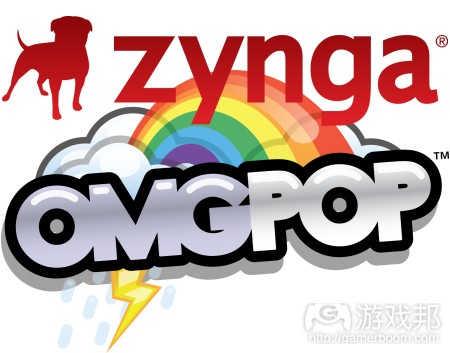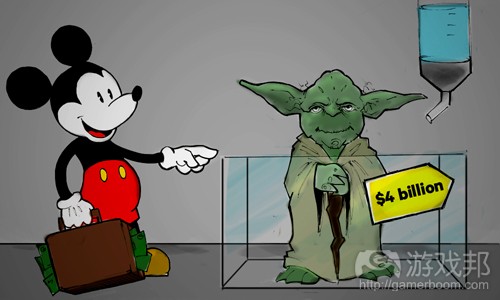回顾2012年手机游戏十大收购/融资事件
作者:Jon Jordan
考虑到2012年有DeNA收购ngmoco,2011年有Zynga的首次公开募股,如果你认为2012年在手机游戏的并购方面没有什么突破的话,那么你的想法也不算错。
然而,事实却不是这样的,尽管在亚洲发生了几起最大的生意,或考虑到他们的全部实力,已经是最大的了(无论这是好事还是坏事)。
让我来解释一下吧……
1、Nexon以4.7亿美元收购日本开发公司gloops
正如Zynga一样,Nexon在2012年的股票交易也呈上浮态势,因此积累了大量现金(大约12亿)可用于收购。
它的第一桩生意相当小:购买了20%的Moyasoft公司股票。
它的第二桩生意是目前的今年之最;确实,它是我们所能想到的、继EA于2005年6.8亿美元收购Jamdat后最大的纯手机游戏收购生意了。
至于gloops,走出日本之外并没什么名气。它从2010年开始从事手机游戏开发,特别是针对DeNA的Mobage平台。它与DeNA是战略合作伙伴关系。
这次收购是否靠谱,现在还很难说。就像GREE和Zynga一样,Nexon显然也想迅速扩大规模,于是立即出手,一出手就是大手笔。
如果在gloops面向欧美的10款手机游戏中,有任何一款获得成功,那么Nexon董事会就可以当自己是收购专家了。但考虑到这笔生意的规模,以及gloops在日本之外几乎没有胜算,这些高管们可能最好去查查他们的雇佣合同上的附属细则。
2、Zynga以高达1.8亿美元收购《Draw Something》开发商OMGPOP
回顾三月份,《Draw Something》还是这个星球上最热门的社交游戏。所有人都在谈论它,都在玩它。它在iOS上的下载量在5周内就达到3千万次。
Zynga看到自己的股票价格持续走低,觉得该来一次成功了。它有的是钱,这桩生意它自己就能买单,但结局并不美好。
从股票价格和内部凝聚力看,Zynga在2012年几乎是衰退了。OMGPOP几乎给首席执行官Mark Pincus和其他高管们泼了盆冷水。
确实,甚至Zynga的会计人员后来也声称,此举导致公司商誉方面的损失介于8500万至9500万美元之间。
3、GREE以2.1亿美元收购美国硬核社交游戏公司Funzio
GREE在2012年的第二桩买卖就是收购Funzio。就像收购Pokelabo,这次举动表明GREE已经准备好大投入大收获。
事后看来,这两桩生意都不太可能产生长期的大收益,但GREE宁可赌上一把的原因是,它已经迫不及待地想占领免费游戏市场。
在快速发展的中核/硬核手机游戏市场,Funzio是一家重要的公司,虽然它还比不上Storm8或Kabam。
鉴于Funzio三款热门游戏的数百万活跃用户——以及它并入GREE旧金山工作室的130名开发人员,这次收购在未来也许终会证实其成果。
尽管有消息称,Funzio第三季度的销售额是1200万美元,其中有一个月就达到500万美元,这暗示着其估值并不算太夸张。但是,在如此风云变幻的市场,1200万美元不可能一年就生成6000万美元,更别说2000万美元以上的利润了。
4、GREE以1.7亿万美元收购日本游戏公司Pokelabo
DeNA能做的,其日本竞争对手GREE也能做。今年它出手两笔大生意,其中一笔就是花了1.7亿美元收购发行公司Pokelabo。
除了日本,Pokelabo在外的名气并不大,它从2008年开始制作社交手机游戏,在iOS和Android平台上成功的作品有《Sengoku Fantasia》和《Monster Paradise》。
Pokelabo的收益状况如何并不明确,因此这桩生意显得相当冒险。
5、DeNA以9200万美元收购Cygames公司20%的股票
类似于NaturalMotion收购Boss Alien,资本雄厚的DeNA决定跨出战略性的一步,以保证将日本的游戏开发商Cygames收入囊中。
原因是,Cygames的卡片战斗游戏《Rage of Bahamut》在美国大获成功,创下了千万美元的收益,这给DeNA的Mobage游戏平台带来了最迫切需要的成功。
然而,考虑到Cygames本身属于大公司CyberAgent,DeNA没有办法(或不想)全权收购它。考虑到20%的股权就要价9200万美元,可能Cygames就是太贵了,或者持有500股—-当然还能购买更多股,目前已经足够让DeNA安心了。
6、迪士尼以40.5亿美元收购Lucasfilm
另一桩难以下定论的生意是迪士尼以40.5亿美元收购Lucasfilm(游戏邦注:包括该公司所有原创作品、Industrial Light and Magic和LucasArts工作室)。
看起来好像挺划算的,但迪士尼在之前的大生意中已经做了错误的判断,居然斥资5.63亿美元收购社交游戏发行公司Playdom,而Facebook的游戏市场不久就转入低迷期了。据传言,迪士尼在手机游戏开发公司Tapulous上投入3000万美元更为成功,它为《Where My Water?》和《Temple Run: Brave》等Disney Mobile游戏的成功打下了基础。
因为《星球大战》新电影将于2015年上映,迪士尼似乎也没有必要这么急着挖掘LucasArts资源以创造额外收益。从长远看来,如果管理得当,这桩生意看起来也不坏。
7、索尼以3.8亿美元收购云游戏公司Gaikai
索尼为什么决定收购流媒体游戏服务公司Gaikai?原因尚不明了。想到它今年发行PS Vita和PlayStation Mobile表现不济的情况,我们只能猜想索尼自己究竟是否知道原因。
但是,我们可以肯定的是,某些流媒体游戏服务将整合到下一代PlayStation主机中。
考虑到PS Vita、Sony Mobile的手机和主机PlayStation 3之间的整合程度越来越高—-PlayStation Plus是这家公司在今年为数不多的成功项目之一,我们相信这种流媒体服务肯定会出现在移动设备上。
考虑到OnLive(游戏邦注:这是美国OnLive推出的云计算游戏点播平台)在这个领域的问题—-尽管HTC是投资商,相信很少人会认为这么一笔昂贵的生意能够在12个月内创造与之相当的价值。
8、NaturalMotion一个月内集资1100万美元、收益1200万美元,收购Boss Alien
在一个看似完全合理的交易中,快速发展的英国公司NaturalMotion总融资额高达1900万美元,其中有110万美元来自Benchmark Capital。
这条新闻之所以特殊,是因为它公布于另一件事发生六周后,即该公司发行的游戏大作《CSR Racing》在iOS上一个月内创下1200万美元的收益。也许它根本就不需要筹资吧?
NaturalMotion的下一步行动是完成收尾工作,以保密价钱收购了Boss Alien(《CSR Racing》的开发工作室)。看来其融资的1100万美元到底是派上用场了。
9、Glu以280万美元收购在线服务公司GameSpy
年度最惊人的消息之一是,免费游戏发行商Glu以280万美元全股收购GameSpy。因此,Glu得到GameSpy、它的技术和100万美元现金。
考虑到GameSpy对在线PC/游戏机游戏领域做出的贡献,280万美元的收购价格似乎偏低了,但老东家IGN好像急于脱手这个子公司。它在2004年收购GameSpy时的出价高达5460万美元。
至于它对Glu在2013年生意会产生什么影响,Glu首席执行官Niccolo de Masi的说法是:“我们认为GameSpy有最好的数据库和服务器设施。”
竞技型PVP手机游戏现在高居总收益排行榜,他希望这会给Glu带来这个领域的竞争优势。
10、几家手机游戏公司筹得巨资
如果在一开始,我就列出一份包含六个公司的名单,上面注明它们在2012年通过不同风险投资商筹集大量资金,那么读者大约会觉得受骗了。然而,重点是,大部分读者不知道这些公司是干什么的,也不知道在这种大环境之下,它们干什么是否重要。
相反地,你得知道的只有美国西海岸的投资商们仍在将大量的美元砸在从事手机广告、手机营销、手机奖励、手机分析和手机平台的公司上,这些公司都是以企业对企业的电子商务方式运作的。
在这种情况下,Flurry(融资2500万美元)、SessionM(2000万美元)、 Fiksu(1000万美元), MoPub(1200万美元), Kiip(1100万美元)和MoMinis(850万美元)将确保游戏开发商在明年有足够的运作技术。
这些投资将创造整个手机应用和游戏生态系统未来的成功,也因此而显得十分重要。(本文为游戏邦/gamerboom.com编译,拒绝任何不保留版权的转载,如需转载请联系:游戏邦)
Top 10 deals of 2012
by Jon Jordan
With DeNA buying ngmoco in 2010 or Zynga’s 2011 IPO, you might be forgiven for thinking that 2012 was lacking in terms of mobile gaming mergers and acquisitions.
It wasn’t, of course, although some of the biggest deals happened in Asia or have yet to been realised in terms of their full potential (or good or bad)
Let us explain…
10. Various mobile ecosystem companies raise lotta cash
It may seem like cheating to kick off our list with a group of half a dozen companies who raised substantial sums from various venture capitalists in 2012. However, the point is most readers won’t be aware of exactly what these companies do; nor – in that context – does it matter.
Instead, all you need to know is US west coast investors are continuing to pump tens of millions of dollars into mobile advertising, mobile monetisation, mobile rewards, mobile analytics and mobile platform companies, all of who operate in b2b fashion.
In this context, the cash gained by Flurry ($25 million), SessionM ($20 million), Fiksu ($10 million), MoPub ($12 million), Kiip ($11 million) and MoMinis ($8.5 million) will ensure game developers have the tools they need to operate in 2013.
These are investments in the future success of the entire mobile app and game ecosystem and important for that reason.
[A- on the PocketGamer.biz's M&A score card]
9. Glu buys online services outfit GameSpy for $2.8 million
One of the year’s surprises saw free-to-play mobile publisher Glu picking up GameSpy in an all-share acquisition worth $2.8 million. For that it got GameSpy, its technology and $1 million in cash.
Given GameSpy’s heritage in the online PC/console gaming space, the price seemed low, but owner IGN appeared keen to offload the company quickly. It originally paid $54.6 million for GameSpy in 2004.
As for the impact it will have on Glu’s as-yet loss-making business in 2013, “We think GameSpy has the best database and server infrastructure in the business,” commented Glu’s CEO Niccolo de Masi.
He expects this will give Glu a competitive advantage in terms of the competitive PVP mobile games that are currently sitting atop the top grossing charts.
[B+ on the PocketGamer.biz's score card]
8. NaturalMotion raises $11 million, generates $12 million in a month, buys Boss Alien
In a deal that appeared completely logical, fast growing UK company NaturalMotion took its total investment raised to $19 million, with $11 million from Benchmark Capital.
What put the news into a different context, however, was the announcement six weeks later that its massively successful hit CSR Racing had generated $12 million on iOS within a month period. Maybe it didn’t need the funding after all?
NaturalMotion then took the step of tying up loose ends, securing its future by purchasing Boss Alien, the UK developer behind CSR Racing for an undisclosed – but no doubt substantial – sum. That $11 million came in useful after all then.
[A on the PocketGamer.biz's M&A score card]
7. Sony acquires cloud gaming company Gaikai for $380 million
It’s not yet clear how Sony’s decision to buy streaming game service Gaikai will feed through to smartphones and tablets. Given the mess it’s made of the launches of PS Vita and PlayStation Mobile this year, one wonders if Sony itself knows.
But, we’ll assume some sort of streaming games service will be integrated into the next PlayStation console.
And given the growing integration between PS Vita, Sony Mobile’s smartphones, and current generation console PlayStation 3 – PlayStation Plus is one of the few successes for the company in 2012 – we can’t believe this streaming service won’t also feature on mobile devices.
Still, given OnLive’s problems in this area – and that despite HTC being an investor – only a foolish man would predict such an expensive deal will be labelled as value for money in 12 months time.
[B- on the PocketGamer.biz's M&A score card]
6. Disney acquires Lucasfilm for $4.05 billion
Another deal that’s difficult to quantify is Disney dropping $4 billion for Lucasfilm (including all IP, Industrial Light and Magic, and LucasArts).
It seems cheap, but Disney has exercised poor judgement in previous big money deals, spending at least $563 million on social publisher Playdom just before the Facebook gaming market hit a downturn. The rumoured $30 million spent on mobile developer Tapulous was more successful, however, providing the platform for Disney Mobile’s current success with titles such as Where My Water? and Temple Run: Brave, amongst others.
Still, with new Star Wars film due in 2015, it would seem there’s no urgent requirement for Disney to plunder LucasArts’ back catalog quickly in order to generate additional revenue. Well managed, in the longterm, this deal could be seen a bargain.
[B on the PocketGamer.biz's M&A score card]
5. DeNA spends $92 million, buying a 20% stake in Rage of Bahamut dev Cygames
Similar to NaturalMotion’s acquisition of Boss Alien, cash-rich DeNA decided it had to make a strategic move to ensure Japanese developer Cygames was lashed to its mast.
The reason was that (against all reason), Cygames’ card-battling title Rage of Bahamut was a big hit in the US, generating tens of millions of dollars and giving DeNA’s Mobage gaming platform some much needed success.
However, given Cygames is itself owned by large outfit CyberAgent, DeNA couldn’t (or didn’t want to) buy it outright. Considering the price tag of $92 million for a 20 percent stake, perhaps Cygames’ was just too expensive, or perhaps the reassurance of owning 500 shares – no doubt including the right to purchase more – was sufficient for the time being.
[B+ on the PocketGamer.biz's M&A score card]
4. GREE pays $170 million in cash to snap up Japanese publisher Pokelabo
Whatever DeNA can do, Japanese rival GREE can do too. In one of two large deals in 2012, it spent $170 million in cash to buy developer Pokelabo.
Not well known outside of its native Japan, it’s been making social mobile games since 2008, finding success with titles such as Sengoku Fantasia and Monster Paradise on iOS and Android.
It really not clear that Pokelabo has generated significant revenues or profits, however, making this appear a very speculative deal.
[C+ on the PocketGamer.biz's M&A score card]
3. GREE acquires US hardcore social publisher Funzio for $210 million
GREE’s big deal in 2012, however, was the purchase of US developer Funzio. Like the Pokelabo deal, this demonstrated GREE was prepared to spend big to grow very quickly.
In hindsight, it’s unlikely either deal will be viewed as providing great longterm value, but the reason GREE was prepared to pay is over the odds is it’s very impatient to gain significant scale in the free-to-play market.
And Funzio was important as a key company in the fast growing mid/hardcore mobile gaming market, albeit one without the reach of a Storm8 or the properties of a Kabam.
Still, with three games released and millions of active players – not to mention 130 developers who have been integrated into GREE’s San Francisco studio – it’s a deal that you could argue will work out in the long run.
And the news that Funzio had generated $12 million in sales during its third quarter, including $5 million in a month, suggests the valuation wasn’t as crazy as was originally though. Still, in such as fast-moving market, $12 million doesn’t necessarily add up to $60 million annually, let alone $20+ million in profit.
[B on the PocketGamer.biz's M&A score card]
2. Zynga buys Draw Something developer OMGPOP for up to $180 million
Back in March, Draw Something was the hottest social game on the planet. Everyone was talking about it, and playing it. It racked up 30 million iOS downloads in five weeks.
Zynga – which was seeing its share price steadily falling away – needed a hit. It had a lot of cash. The deal pretty much did itself.
But despite what some commentators said at the time, hindsight has not been kind. With Zynga all but collapsing during 2012 in terms of its share price and internal cohesion, the OMGPOP had become a stick with which to beat up CEO Mark Pincus and his executives.
Indeed, even Zynga’s accountants have since marked down the deal, claiming an impairment charge of between $85 million and $95 million in terms of the loss of goodwill.
[C- on the PocketGamer.biz's M&A score card]
1. Nexon acquires Japanese dev gloops in $470 million all cash deal
Like Zynga, Nexon entered 2012 having floated on a stock exchange (in Japan), generating a large amount of cash (around $1.2 billion) that could be used for acquisitions.
Its first deal was rather small: buying a 20 percent share of developer Moyasoft.
Its second deal was by far the biggest of the year; indeed, it’s the biggest pure mobile gaming acquisition we can think of since EA’s $680 million acquisition of Jamdat in 2005.
As for gloops, it’s relatively unknown outside of Japan, where it’s been making mobile games since 2010, particular on DeNA’s Mobage platform. It has a strategic partnership in place with DeNA.
Whether the deal will work out to be a sensible one, that’s currently very difficult to tell. As with GREE and Zynga, Nexon clearly wanted to gain scale very quickly and had the cash on-hand to make a very big move immediately.
If any of gloops’ ten forthcoming mobile games for the US and Europe are hits, the Nexon board will consider themselves business gurus. But given the sheer size of the deal, and gloops’ almost total lack of success outside of Japan, those executives might do better to check the small print of their employment contracts.(source:pocketgamer)









































 闽公网安备35020302001549号
闽公网安备35020302001549号